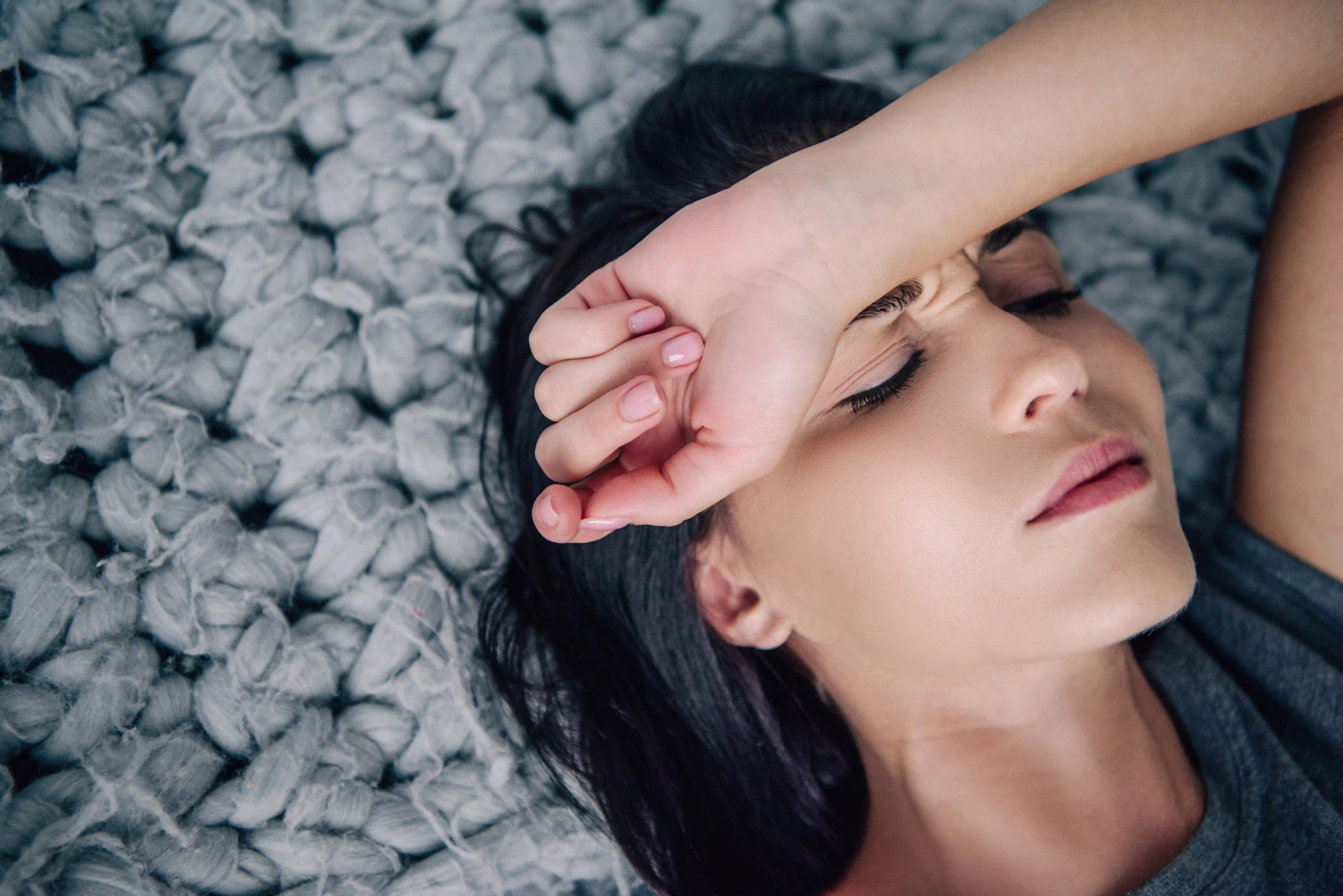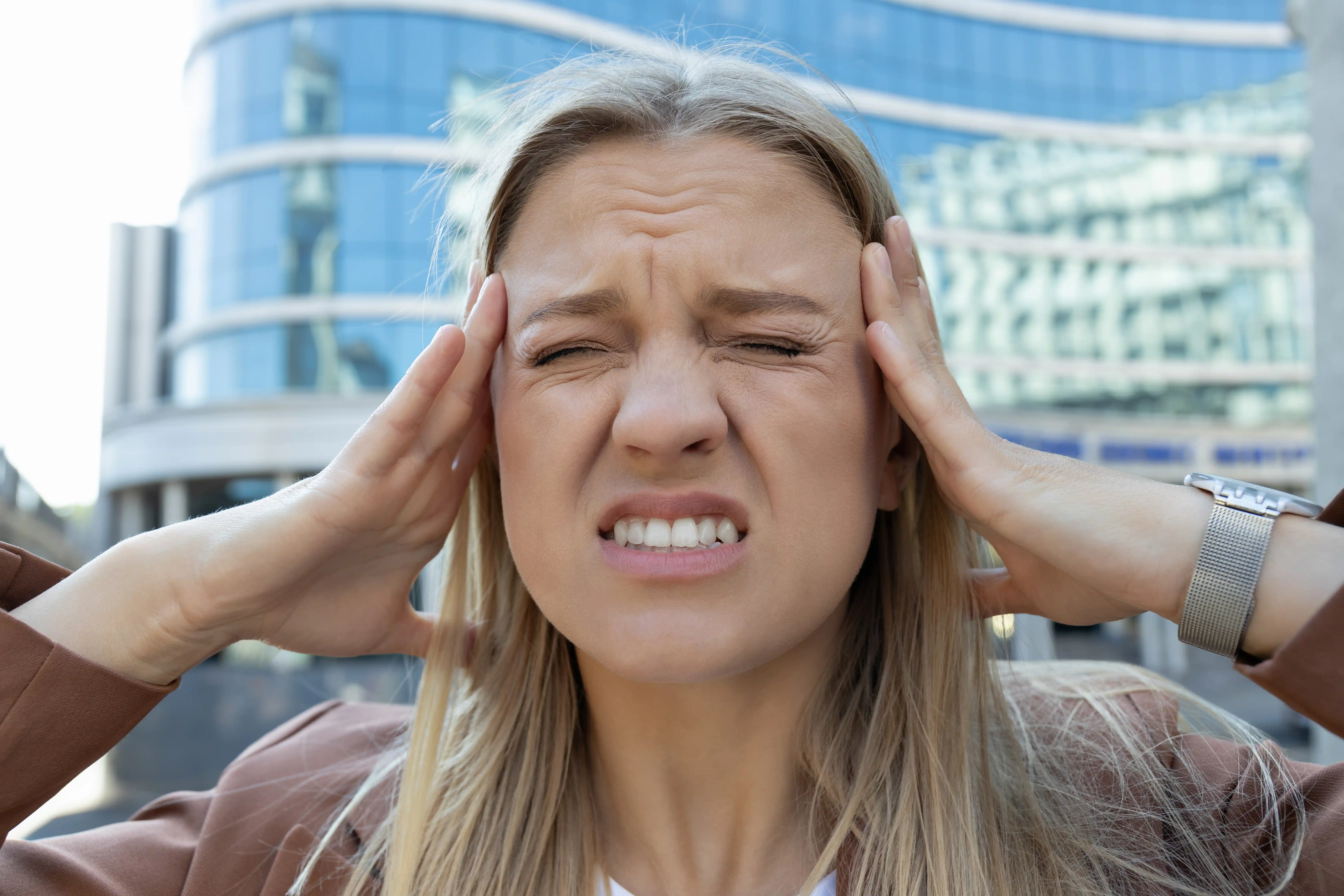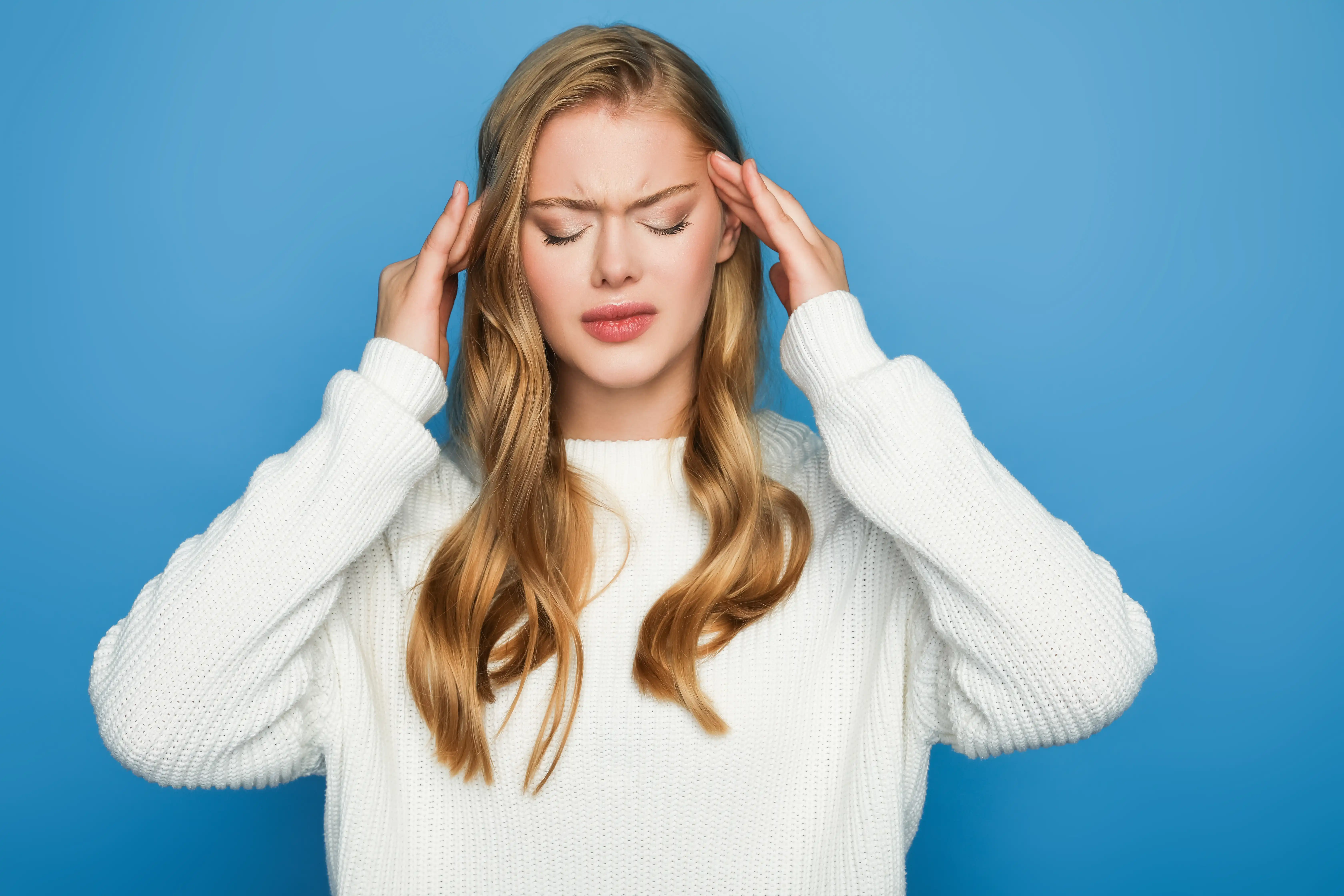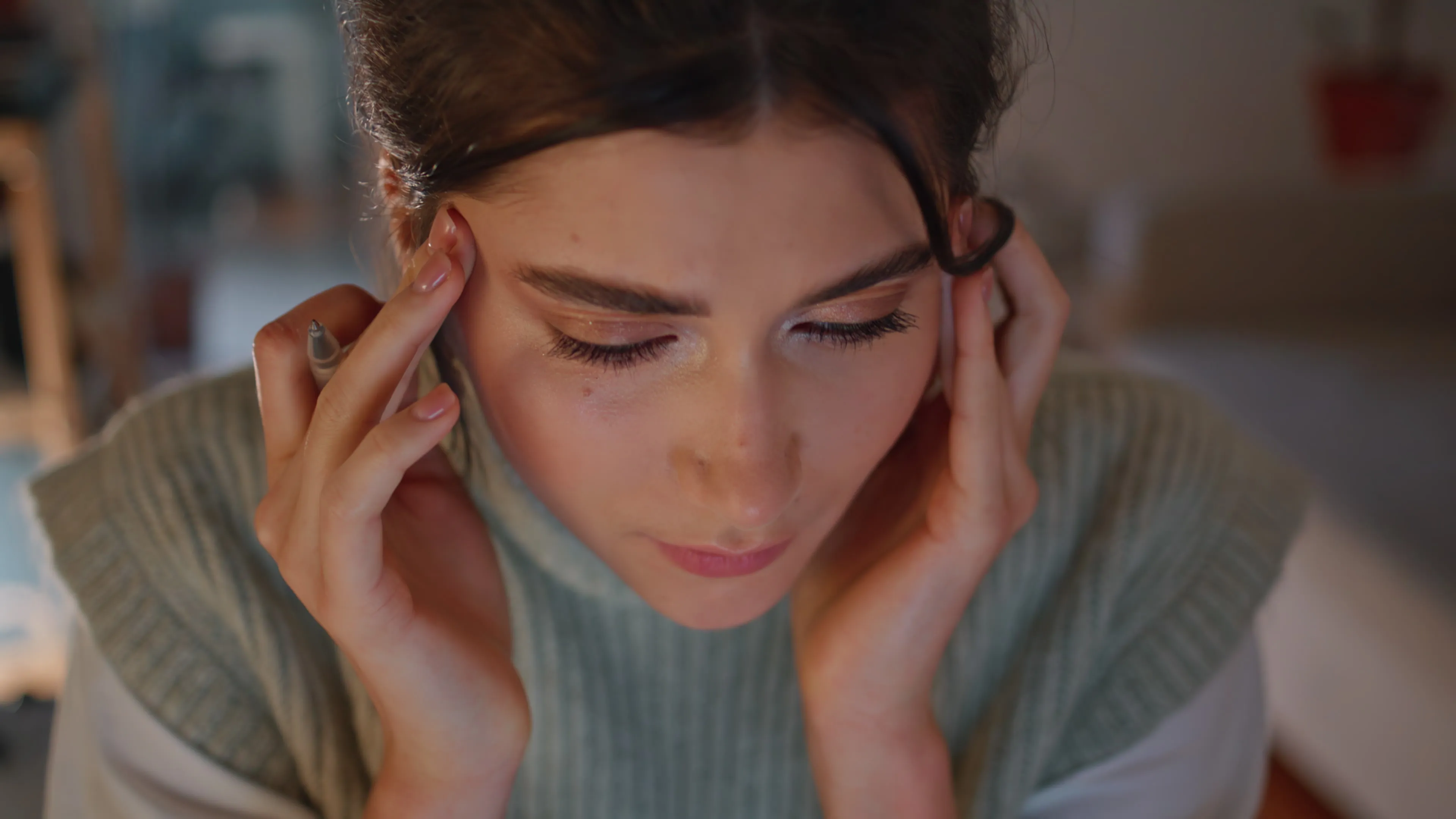Waking up with headaches during the night can be frustrating, especially when it happens regularly. Some people experience these nighttime recurring headaches without a clear reason, making it difficult to find relief.
Though they tend to follow a consistent pattern, their underlying cause is not fully understood. Because headaches like these may signal broader issues related to physical health, understanding their impact is essential for proper care and recovery.
In this article, we will explore everything related to hypnic headaches, including their potential causes and how they impact sleep, which can help individuals seek the right treatment and improve their sleep quality.
What are hypnic headaches?

Hypnic headaches are a rare type of night headache disorder that occurs only during sleep, waking individuals up unexpectedly.
One of the defining characteristics of hypnic headaches is their consistent timing. Many individuals experience them at the same time each night, making them highly disruptive to sleep patterns.
Symptoms of Hypnic Headaches
- Frequent during Nighttime: Hypnic headaches occur exclusively during sleep, often waking individuals at the same time each night. They typically develop in the later sleep stages, disrupting the circadian rhythm and making it difficult to return to sleep.
- No Nausea, Vomiting, or Sensitivity to Light/Sound: Unlike migraines, hypnic headaches do not usually cause nausea, vomiting, or heightened sensitivity to light and sound. This distinction helps differentiate them from other types of headaches that may occur at night.
- Pain Lasting 15 Minutes to 3 Hours: The headache duration can vary but generally falls within this range. While the pain may occur on its own, some individuals experience prolonged throbbing headaches at night, affecting their ability to get restful sleep.
- Affects Both Sides of the Head: Unlike cluster headaches, which typically affect only one side, hypnic headaches are usually bilateral. The feeling is often described as a dull, throbbing pain or pressure-like sensation rather than a sharp or stabbing one.
How Hypnic Headaches Differ from Other Headaches
Hypnic headaches are unique because they occur exclusively during sleep, waking individuals at the same time each night.
Unlike migraines or tension headaches, they are not triggered by external factors like stress or dehydration. They also lack sensory symptoms such as nausea, vomiting, or sensitivity to light and sound, which are common in migraines.
Additionally, while cluster headaches cause intense, one-sided pain, hypnic headaches tend to produce a mild to moderate throbbing sensation on both sides of the head.
Another key difference is their response to treatment. Hypnic headaches often improve with caffeine or medications like lithium, whereas migraines and cluster headaches require different treatments such as triptans or oxygen therapy.
Causes and Triggers of Hypnic Headaches
- Sleep-wake Cycle Dysregulation: Hypnic headaches are believed to be linked to disruptions in the body’s natural circadian rhythm, possibly involving the hypothalamus. Since they occur exclusively during sleep, abnormalities in sleep regulation may contribute to their existence.
- Melatonin Imbalance: Melatonin, the hormone responsible for regulating sleep, may play a role in hypnic headaches. Low melatonin levels, especially in older adults, could contribute to nighttime headaches by affecting sleep stability and brain activity during rest.
- Changes in Brain Blood Flow: Changes in cerebral blood flow during sleep may be the cause of hypnic headaches. These changes could lead to abnormal activation of pain pathways, resulting in nighttime headaches.
- Aging and Brain Activity: Hypnic headaches are more common in older adults, particularly women, indicating that age-related changes in brain function, neurotransmitter activity, and sleep architecture may be contributing factors.
- Caffeine Withdrawal: In some cases, hypnic headaches may be linked to a sudden reduction in caffeine intake, particularly in those who regularly consume caffeine throughout the day. A drop in caffeine levels overnight could trigger headaches as the body adjusts.
How Hypnic Headaches Affect Sleep and Daily Life

Hypnic headaches disrupt sleep by repeatedly waking individuals during the night, often at the same time, making it difficult to get restful, uninterrupted sleep.
Over time, this sleep disturbance can lead to excessive daytime fatigue, difficulty concentrating, and mood changes, affecting overall productivity and quality of life.
Sleep Disruptions and Nighttime Wake-Ups
A hypnic headache significantly disrupts sleep by causing sudden awakenings at the same time each night. These interruptions prevent individuals from reaching deep, restorative sleep stages, leading to overall poor sleep quality.
Since the pain can last for an extended period, falling back asleep may become difficult, further reducing total sleep duration. Over time, this cycle of frequent nighttime wake-ups can contribute to chronic sleep deprivation, making it even harder to maintain a consistent and restful sleep schedule.
Daytime Fatigue and Reduced Energy Levels
Because hypnic headaches interfere with sleep, individuals often experience persistent daytime fatigue and low energy levels. The lack of deep sleep can leave people feeling sluggish, unfocused, and mentally exhausted throughout the day.
Tasks that require concentration may become more challenging, impacting productivity at work or school. In severe cases, chronic fatigue can also contribute to physical exhaustion, making everyday activities feel more draining than usual.
Impact on Mood and Mental Health
Sleep loss and ongoing pain can negatively impact mental health, resulting in increased irritability, anxiety, and even symptoms of depression. Poor sleep quality is closely linked to emotional instability, and frequent nighttime awakenings can make it harder to regulate stress and mood.
Over time, the frustration of dealing with recurring headaches can add to emotional distress, further amplifying the negative impact on overall well-being.
Link Between Hypnic Headaches and Other Sleep Disorders
Hypnic headaches are often related to other sleep disorders, as they share similar triggers and disruptions in sleep cycles.
While hypnic headaches are unique in their pattern of waking individuals from sleep, they may coexist with or be mistaken for other conditions that cause nighttime awakenings or sleep disturbances.
- Insomnia: Chronic difficulty falling or staying asleep, leading to fragmented rest and daytime fatigue. People with insomnia may experience nighttime awakenings similar to those caused by hypnic headaches, making it difficult to differentiate between the two conditions.
- Obstructive Sleep Apnea (OSA): A sleep disorder characterized by repeated breathing interruptions during sleep due to airway obstruction. OSA can cause frequent awakenings, morning headaches, and poor sleep quality, which may overlap with symptoms of hypnic headaches.
- Restless Legs Syndrome (RLS): A neurological condition that causes an uncontrollable urge to move the legs, often worsening at night. RLS can disrupt sleep and contribute to insomnia, increasing the likelihood of nighttime headaches and sleep deprivation.
How to Prevent Hypnic Headaches

Maintaining a consistent sleep schedule, creating a relaxing bedtime routine, and minimizing disruptions in the sleep environment can all contribute to better rest and fewer nighttime headaches.
You could explore the lifestyle and sleep strategies listed below, along with adjusting your diet, to help manage symptoms and reduce the likelihood of hypnic headaches occurring.
Lifestyle and Sleep Strategies
- Maintain a Consistent Sleep Schedule: Going to bed and waking up at the same time every day helps regulate the body's sleep-wake cycle, reducing the chances of nighttime headaches. Irregular sleep patterns can disrupt deep sleep stages, making hypnic headaches more likely. Sticking to a routine, even on weekends, supports better overall sleep quality and headache prevention.
- Limit Alcohol and Heavy Meals before Bed: Drinking alcohol before bed can interfere with sleep cycles and may contribute to nighttime headaches. Heavy meals late at night can cause discomfort, acid reflux, and disrupted sleep, increasing the risk of hypnic headaches. Avoiding alcohol and opting for a light, nutritious snack instead may help promote more restful sleep.
- Practice Relaxation Techniques: Incorporating relaxation techniques like deep breathing, meditation, or gentle stretching before bed can help reduce stress and promote deeper sleep. Lowering stress levels may also decrease headache frequency, as tension and anxiety can be triggering. Creating a calming bedtime routine signals the body that it’s time to wind down, improving sleep quality.
- Keep a Headache Diary: Tracking headache patterns, sleep habits, and potential triggers in a journal can help identify factors contributing to hypnic headaches. Noting when headaches occur and what might have influenced them provides valuable insights for effective management. Sharing this information with a healthcare provider can lead to better treatment strategies.
- Reduce Stress Levels: Chronic stress can contribute to headaches and disrupt sleep, making relaxation techniques essential for prevention. Activities like yoga, mindfulness, and light exercise can help manage stress levels and improve overall well-being. Establishing healthy coping mechanisms reduces the likelihood of stress-induced sleep disturbances.
- Optimize Sleep Environment: A cool, dark, and quiet bedroom promotes better sleep and may help prevent nighttime headaches. Investing in a comfortable mattress, blackout curtains, and white noise machines can create an ideal sleep setting. Reducing electronic screen exposure before bed also minimizes sleep disruptions and will eliminate the chances of you experiencing a nighttime headache.
Managing Light Exposure Before Bed
Exposure to bright light, especially from screens, can interfere with melatonin production and disrupt the body’s natural sleep-wake cycle.
Blue light from phones, tablets, and computers suppresses melatonin, making it harder to fall and stay asleep, which may contribute to hypnic headaches. Dimming the lights, reducing screen time at least an hour before bed, and using warm, low-intensity lighting in the evening can help promote better sleep quality.
Dietary Adjustments
Certain dietary choices may help reduce the frequency of hypnic headaches by supporting healthy sleep patterns and preventing potential triggers.
Avoiding excessive caffeine in the evening, staying hydrated, and ensuring sufficient intake of magnesium and other essential nutrients can contribute to better sleep. Keeping a balanced diet rich in whole foods while avoiding processed foods or potential headache triggers like artificial sweeteners and alcohol may also help.
Treatment Options for Hypnic Headaches

Effective treatment for hypnic headaches is essential to reduce their frequency, prevent nighttime disruptions, and improve overall sleep quality.
Both medical and lifestyle approaches can help manage symptoms and provide relief. Here are some treatments that may help reduce the occurrence of hypnic headaches for better sleep quality.
Medications for Hypnic Headache Prevention
- Caffeine before Bed: A small dose of caffeine before bedtime prevents hypnic headaches without significantly disrupting sleep. It works by stimulating the central nervous system and regulating blood flow in the brain. Some people find relief with a cup of coffee or caffeine tablets before sleep.
- Lithium: Lithium carbonate is a mood-stabilizing medication that can help prevent hypnic headaches by regulating neurotransmitter activity. It is often prescribed for chronic cases but requires careful monitoring due to potential side effects. Regular blood tests may be needed to ensure safe use.
- Indomethacin: Indomethacin is a nonsteroidal anti-inflammatory drug (NSAID) that may help reduce the occurrence of hypnic headaches. It works by decreasing inflammation and pain sensitivity in the brain. However, long-term use can cause gastrointestinal issues, so it should be taken under medical supervision.
- Melatonin Supplements: Melatonin is a natural sleep hormone that can help regulate the sleep-wake cycle and potentially reduce hypnic headache frequency. Taking melatonin supplements before bed may improve sleep quality and prevent nighttime awakenings. It is often used as a safer alternative to prescription medications.
- Calcium Channel Blockers: Calcium channel blockers, typically used for high blood pressure, can also help reduce the frequency of hypnic headaches. They work by relaxing blood vessels and improving circulation in the brain. Some doctors prescribe them when other treatments are ineffective.
- Topiramate: Topiramate is an anticonvulsant medication that may help reduce hypnic headache episodes by stabilizing nerve activity. It is sometimes used for migraine prevention and can be effective for chronic headache conditions. Side effects like dizziness or cognitive issues should be monitored.
Alternative and Natural Treatments
Lifestyle changes such as maintaining a consistent sleep schedule, practicing relaxation techniques, and improving sleep hygiene may help manage hypnic headaches naturally.
Some individuals find relief through dietary adjustments, stress management, and avoiding potential headache triggers like alcohol or dehydration. Acupuncture, magnesium supplements, and essential oils are also explored as alternative treatments, though more research is needed.
When to Consult a Doctor
If hypnic headaches become frequent or worsen, consult a doctor to rule out underlying conditions and explore treatment options. Medical advice is essential if symptoms change or intensify.
- Frequent Nighttime Headaches: If hypnic headaches occur regularly and disrupt your sleep multiple times a week, medical evaluation is recommended. Persistent headaches may indicate an underlying issue that requires proper diagnosis and treatment.
- Worsening or Severe Pain: A sudden increase in headache intensity or duration could signal a more serious condition. If the pain becomes unbearable or differs from your usual headaches, it's important to seek medical attention.
- New or Unusual Symptoms: Symptoms like vision changes, confusion, weakness, or difficulty speaking alongside headaches could be warning signs of a more serious neurological condition. Any new or unexpected symptoms should be evaluated by a doctor as soon as possible.
- Lack of Relief from Treatments: If lifestyle changes or prescribed medications fail to reduce headache frequency or severity, a doctor may need to adjust your treatment plan. Persistent symptoms despite treatment may indicate the need for alternative therapies or further medical investigation.
- Occurs with other symptoms: If headaches are accompanied by unusual symptoms such as weakness, confusion, or vision changes, a doctor may recommend a neurological examination or a brain scan to check for other potential causes.
FAQs

Are hypnic headaches dangerous?
Hypnic headaches are not dangerous but can be disruptive to sleep and daily life. They are harmless and not linked to serious conditions. However, if you experience hypnic headache symptoms, consult a doctor to rule out other causes.
Why do I get a headache every night when I’m sleeping?
Hypnic headaches may be caused by sleep cycle disruptions, melatonin imbalances, or changes in brain blood flow. Other factors like dehydration or sleep apnea could also lead to a migraine while sleeping.
Can hypnic headaches be cured?
There is no definitive cure, but treatment options like lithium carbonate, caffeine, or melatonin can help reduce their frequency and intensity. Following a consistent sleep schedule and avoiding triggers may also improve symptoms.
Why do I keep getting pounding headaches while sleeping?
Frequent night headaches could be due to hypnic headaches, sleep apnea, migraines, or issues like dehydration and high blood pressure. Identifying the underlying cause with a doctor can help determine the best treatment.
How to sleep with a hypnic headache?
A dark, quiet sleep environment and relaxation techniques may help ease discomfort. If needed, medication like caffeine or melatonin can prevent headaches from disrupting sleep.
Conclusion
Hypnic headaches, though rare, can significantly disrupt sleep and daily life. Understanding their causes, symptoms, and treatment options is key to managing them effectively. Simple strategies like maintaining a consistent sleep routine, using medications, or adjusting lifestyle habits can help reduce their impact.
If hypnic headaches persist or worsen, consulting a doctor is essential to rule out other conditions and find the right treatment plan.
Dom Abraham
As the lead content writer at Sleepiverse. Dom pours his heart into writing mattress reviews, bedding product reviews, and medically-reviewed health articles. Dom is from Portugal and likes to spend his free time writing on the beach as it gives him a sense of comfort. Aside from writing mattress reviews in front of the soothing beach view, Dom likes to experiment with new amazing food ideas.


